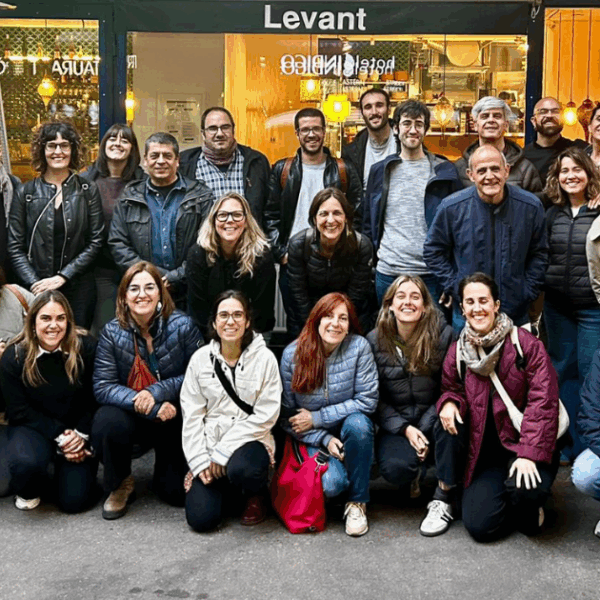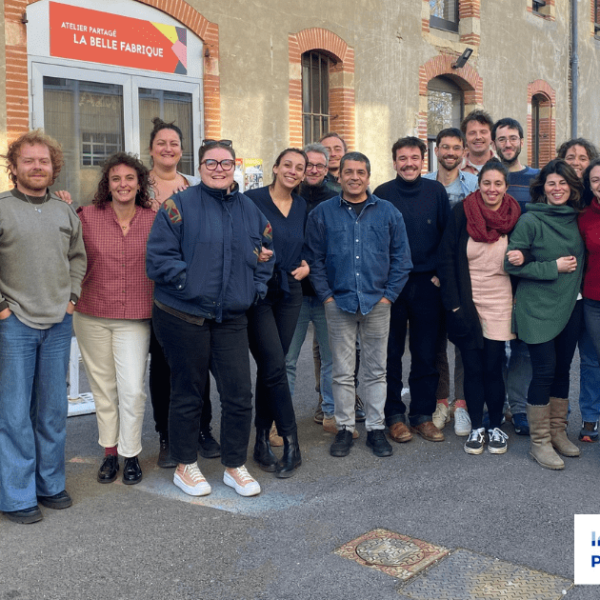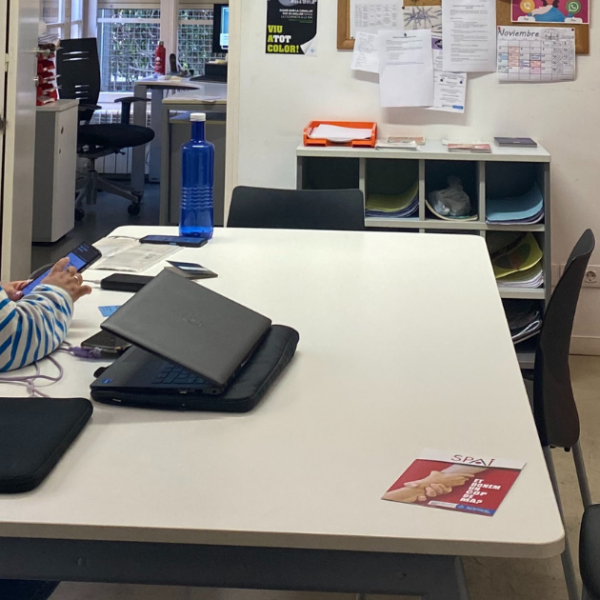iSocial and the UPC have presented the conclusions of the INSESS-COVID19 study at Palau Robert
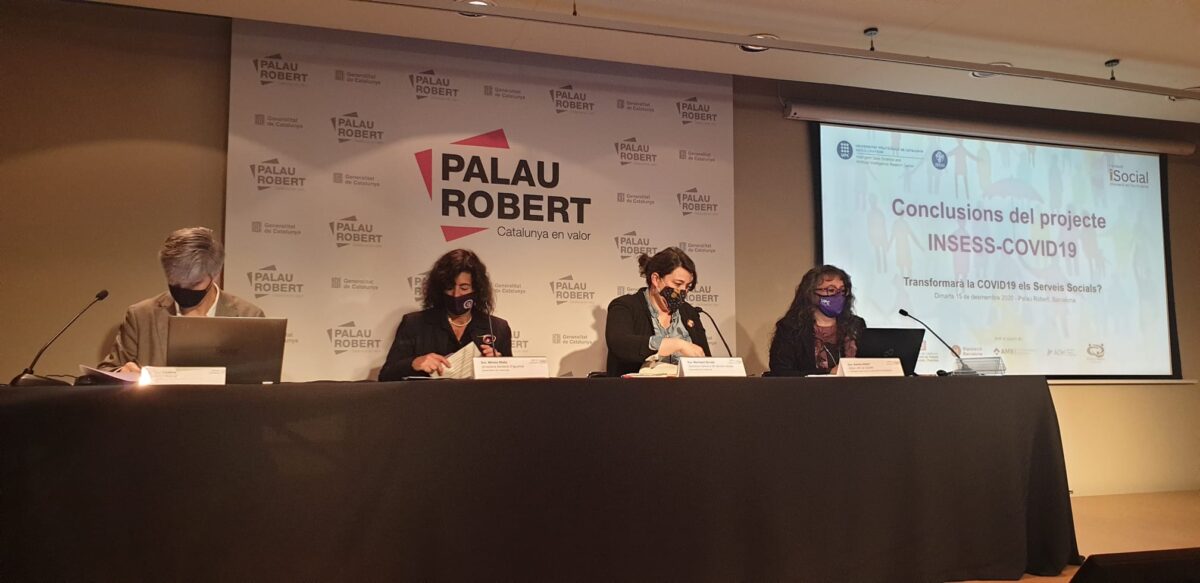
iSocial and the UPC have presented the conclusions of the INSESS-COVID19 study at Palau Robert
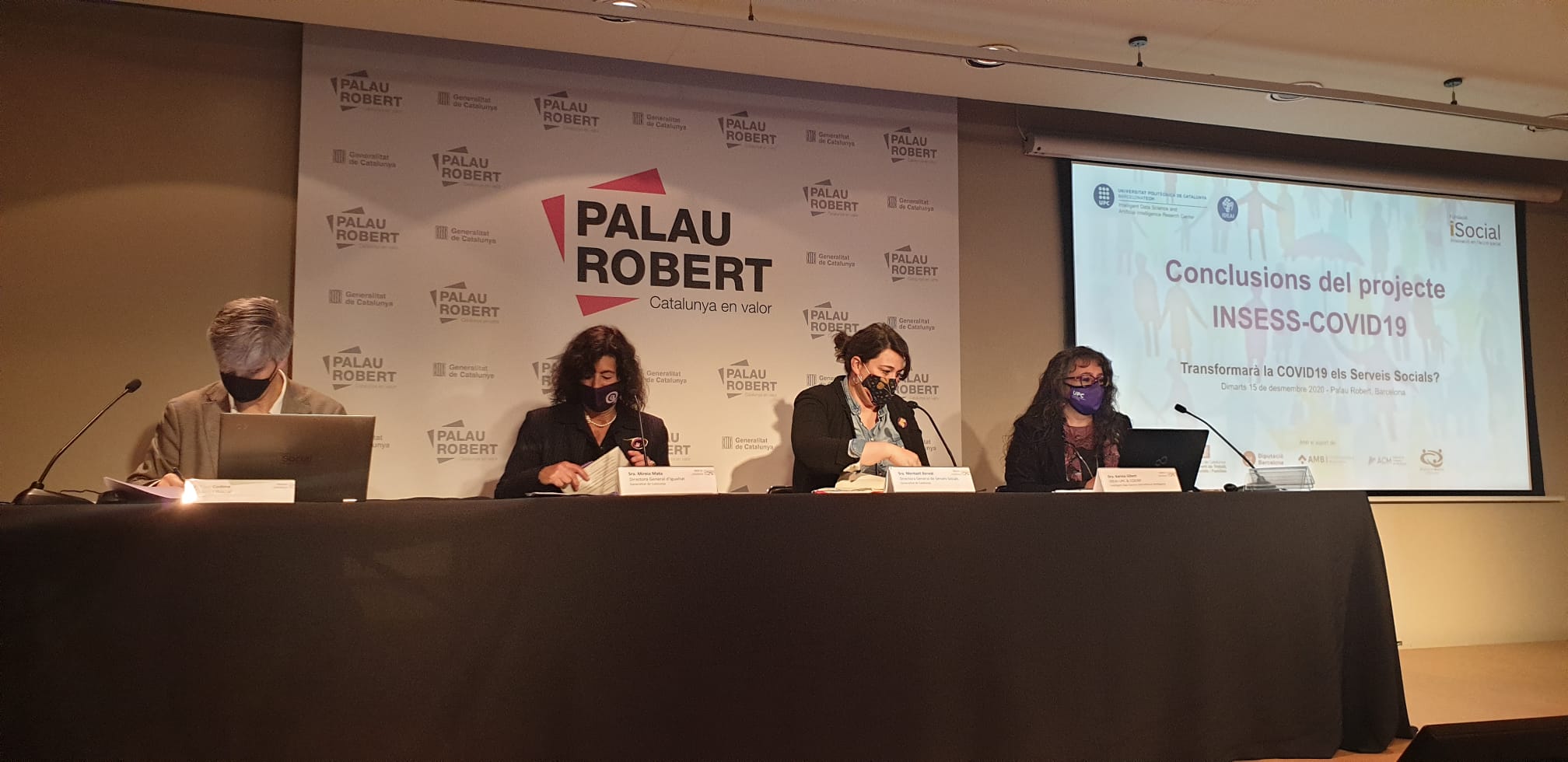
In an event held at the Palau Robert in Barcelona and broadcast by streaming, the iSocial Foundation and the UPC today presented the conclusions of the study ‘INSESS-COVID19: Identification of Emerging Social Needs as a consequence of the covid-19 and effect on the social services of the territory’. More than 100 people attended the event in person or online, which also included a brilliant lecture by Xavier Marcet on “The challenge of creating value and positivity in organizations in turbulent times”, and with interventions from the General Director of Social Services of the Catalan Government, Meritxell Benedí, the General Director of Equality, Mireia Mata, and the Vice-Rector for Social Responsibility of the UPC, Gemma Fargas.
The study was presented by its co-authors, Toni Codina, director of the iSocial Foundation, and Karina Gibert, professor of Intelligent Data Science and Artificial Intelligence (IDEAl) at the Universitat Politècnica de Catalunya (UPC).
The study was based on a survey of 1,000 people using social services across the country, and processed using data science and artificial intelligence techniques. And he pointed out the main impacts that the Covid-19 crisis has had and is having on the 107 basic areas of municipal and county social services, in a double dimension: the impact on people in need of care, and the impact on the practice of professional social services teams. An impact that has come at a time when, as a society, we had not yet fully recovered from the economic crisis that began in 2008, adding an additional burden to social services of local bodies that are already far outdated. In addition, it has burst into a state of less advanced technological maturity than would have been desirable in social services.
First of all, INSESS-COVID19 shows how the current crisis of Covid-19 is impacting, on the one hand, on sectors of the population that were already victims of the last economic crisis and, on the other, on population groups and different social realities that form a new focus of emerging social needs that also demand the attention of the basic social services of the territory.
In terms of impacts in the field, INSESS-COVID19 concludes that the number of people using social services who do not work or receive any benefits has increased by 50% during the pandemic. It also shows that 62% of users have needed help, and 46% of these have been food. In addition, the feeling of loneliness has increased by 29%. The study points to the emergence of new profiles, new vulnerabilities and new “challenges” for social services.
The report is based on the results of 1,000 surveys carried out throughout the territory with the involvement of the basic areas of social services. 67.5% of the answers were provided by women, in response to the profiles given by the researchers. “Need has a woman’s name,” said Karina Gibert.
The results show how social services have had to continue to care for people who also suffered from the economic crisis of 2008 but who have been joined by new profiles, with a new and special impact on the elderly and women in general. In addition, it has burst the digital divide, the effects on essential workers or on time management, among others.
In the workplace, and beyond the 50% increase in those who do not work or receive any benefits, the number of people who work but receive a benefit has increased by 18%, and the number of people who do not receive it has increased by 11%. they have no job or occupation. People fired or laid off have increased by 78%, and 36% more have reduced their working hours. In addition, the number of people who had a business has grown by 110% and they have had to cease their activity or go bankrupt.
When asked about the future, 51% of those who do not work believe that they will not find work in January 2021. The reasons they give are the closure of companies, age or lack of training for the jobs that are now most in demand. 49% of respondents say they have teleworked – in January they were 5% – and 34% of those who have done so have needed emotional support. 22% of them say they have lacked family care time.
In the field of social services, 62% of respondents say they needed some kind of help and 46% of them say it was food. Of the latter, 64% have gone to ask their council. 12% have applied for the Guaranteed Income of Citizenship and 16% have asked for psychological help. In addition, 52% of respondents applied for grants that involved financial benefits during the first wave of the pandemic. However, 70% of them had not received the aid by 1 July.
The director of the iSocial Foundation, Toni Codina, explained that the Covid-19 is also causing consequences in the field of housing but predicted an “outbreak” of problems once the state of alarm is over. The results of the survey show that 25% needed help to pay the rent – 52% went to the town hall – and 27% needed help to pay for household supplies. In addition, 11% needed support to pay taxes. Codina pointed out that these figures are “still moderate”, but insisted that it would not be surprising for them to experience a significant increase in the coming months once the measures of the state of the alarm to contain the denunciations and the cuts supplies.
On the other hand, the study concludes that the feeling of loneliness has increased and has done so especially in women around the age of 60 who live alone and suffer from a certain digital divide. Overall, 73% of respondents believe that the Covid crisis has isolated them, 41% have required emotional support and 58% of those with disabilities say they are worse off after Covid-19. The same goes for those with a mental health problem, where 74% say they are worse after the first wave and among these there are 5% of new patients.
6% of respondents say they are victims of some form of violence and 72% of them are women. In addition, 17% of victims have a university degree and 15% report up to three different profiles of perpetrators.
Regarding the digital divide, 48% of respondents say they do not have a computer, 77% do not have a tablet and 28% do not have wifi. There are 4% who do not even have a mobile phone. 19% of those suffering from digital divide are due to lack of skills, while 15% are due to lack of access to devices.
The study also shows that Covid left 27% of respondents with unresolved lawsuits, including removal orders for gender-based violence and regularization processes. In July, 81% of these processes remained unresolved, with immigrants and women being the most affected profiles.
On the other hand, Codina explained that the study has also shown the enormous impact and challenge that this crisis has caused in social services care teams. They have had to face a sudden avalanche of demand for aid, the processing of benefits and management of all kinds in a scenario of serious difficulties in maintaining the intervention with people often with very serious and very complex needs.
In this sense, Codina pointed out that the crisis has highlighted many shortcomings in the Catalan system of social services that were already known, but that have become more evident. He added that this will force to accelerate the improvements and transformations already proposed by the new Strategic Plan for social services 2020-2024 recently approved by the Parliament of Catalonia. The director of iSocial has also said that new professional profiles will be needed to meet the new realities, as some were already observed in the crisis of 2008 but others, such as the digital divide, the increase in situations of loneliness and depression, or the impact on professionals in essential sectors, are new.
The video of the presentation of the report and of Xavier Marcet’s lecture is yet avalaible in our Youtube channel. The full version of the PDF report, you could consult it in the coming days from the iSocial website, along with the summary document presented at today’s event.
Actualitat

